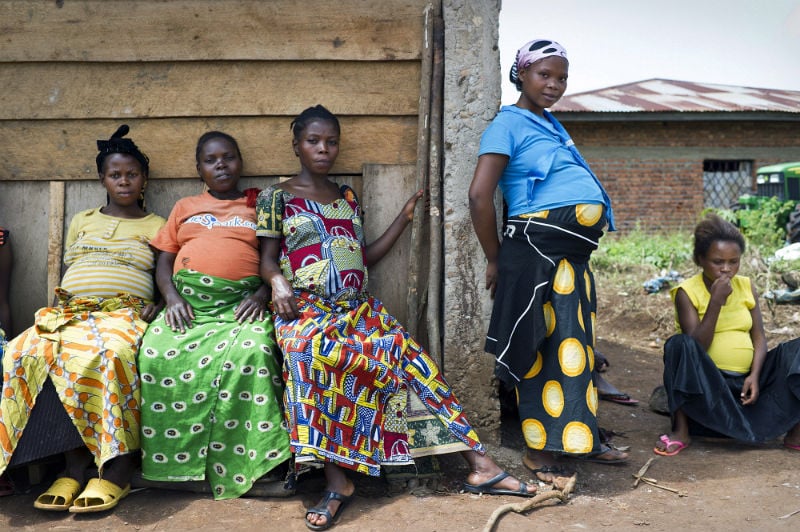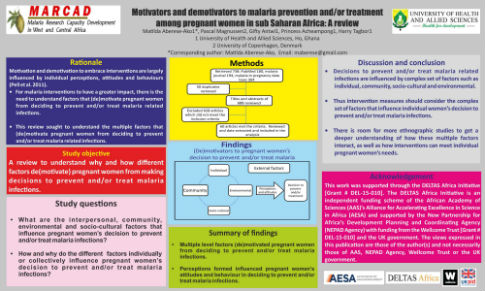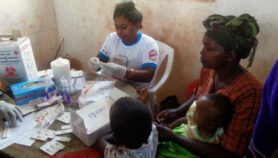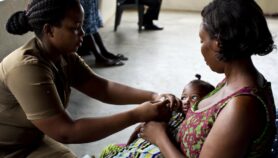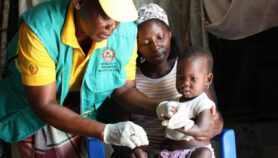By: Samuel Hinneh
Send to a friend
The details you provide on this page will not be used to send unsolicited email, and will not be sold to a 3rd party. See privacy policy.
[ACCRA] The perception by pregnant women that they are not at risk of malaria discourages them from going for prevention and treatment in Sub-Saharan Africa, a study shows.
According to researchers, there is a need to explore the factors that influence the decisions of pregnant women to adhere to malaria interventions in Sub-Saharan Africa.
“There is a perception in Sub-Saharan Africa that malaria is not dangerous, but it is one of the serious killers of people.”
Matilda Aberese-Ako, University of Health and Allied Sciences, Ghana
The study was presented during the Developing Excellence in Leadership, Training and Science (DELTAS) Africa annual grantee meeting in Ghana last month (3-5 July).
Researchers identified 60 journal articles published between 2005-2016 in Sub-Saharan African countries including Ghana, Kenya, Nigeria, Malawi, South Africa from PubMed and other sources, and assessed factors that motivate or demotivate women regarding adhering to interventions for controlling malaria.
The study finds that pregnant women who are illiterate have poor knowledge of malaria infection.
Matilda Aberese-Ako, the lead researcher, and a postdoctoral research fellow at Ghana's University of Health and Allied Sciences, says that interpersonal, community, environmental and socio-cultural factors influence pregnant women to either prevent or treat malaria.
"There is a perception in Sub-Saharan Africa that malaria is not dangerous, but it is one of the serious killers of people and influence decision to prevention and treatment,” she tells SciDev.Net. “Others believe that there could be supernatural forces when a pregnant woman is sick [and] people relate it to spiritual forces [making them] end up seeing a traditionalist."
The study also finds that women who are economically well off and older are more motivated to access malaria interventions.
According to Aberese-Ako, the study is yet to be published in a peer-reviewed journal.
Pascal Magnussen, a co-author of the study and an associate professor of parasitology at the University of Copenhagen, Denmark, explains that practices, perceptions and attitudes are important determinants of how people accept and take up public health interventions, including vaccinations and medicines."Often programmes are launched as a policy without properly informing the public," Magnussen notes, and recommends more communication, information and education materials to positively change the beliefs and attitudes of people in regards to malaria.
Sharon Fonn, a professor of public health at South Africa's University of the Witwatersrand recommends investment in better malaria control, including use of bed nets.
"People using bed nets certainly need encouragement," she adds.
This piece was produced by SciDev.Net’s Sub-Saharan Africa English desk.


